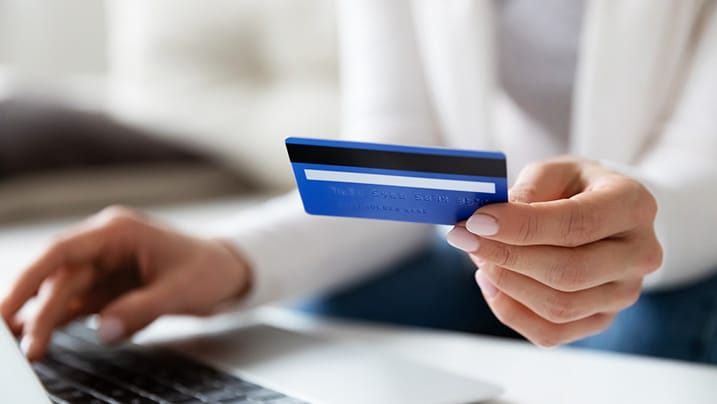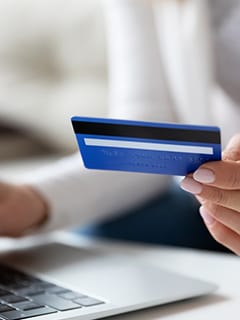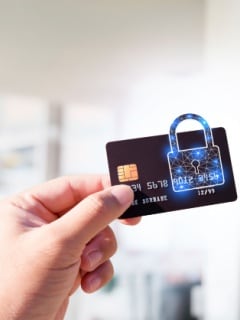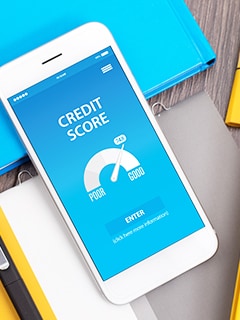CKYC Registry
-
Customer Service Contact us Service request Locate a branch
Find all the help you need
Scan the QR, get our app, and find help on your fingertips

Help CenterSupport topics, Contact us, FAQs and more
-
Login
Are you ready for an upgrade?
Login to the new experience with best features and services
-
Login
Are you ready for an upgrade?
Login to the new experience with best features and services
- Accounts
-
Deposits
IDFC FIRST Bank Deposits
View all Deposits -
Loans
IDFC FIRST Bank Loans
View all Loans - Wealth & Insure
-
Payments
IDFC FIRST Bank Payments
View all Payments -
Cards
IDFC FIRST Bank Cards
View all Cards - Blogs
- Corporate Account
-
Cash Management Services
IDFC FIRST Bank Cash Management Services
View all Cash Management Services - Supply Chain Finance
-
Corporate Lending
IDFC FIRST Bank Lending
View all -
Treasury
IDFC FIRST Bank Treasury
See more details - NBFC Financing
Support topics, Contact us, FAQs and more
- IDFC FIRST Bank Accounts
-
Savings Account
-
Corporate Salary
Account -
Senior Citizens
Savings Account -
First Power
Account -
Current Account
-
NRI Savings
Account -
TASC Institutional
Account -
Savings Account
Interest Calculator
- IDFC FIRST Bank Deposits
-
Fixed Deposit
-
Recurring Deposit
-
NRI Fixed Deposit
-
Safe Deposit Locker
-
FD Calculator
-
RD Calculator
- IDFC FIRST Bank Loans
-
Personal Loan
-
Consumer Durable
Loan -
Home Loan
-
Business Loan
-
Professional Loan
-
Education Loan
-
New Car Loan
-
Pre-owned Car Loan
-
Two Wheeler Loan
-
Pre-owned Two
Wheeler Loan -
Commercial Vehicle
Loan -
Gold Loan
-
Loan Against Property
-
Loan Against Securities
-
Easy Buy EMI card
-
Personal Loan
EMI Calculator -
Education Loan
EMI Calculator -
Home Loan
EMI Calculator -
EMI Calculator
-
Personal Loan Eligibility Calculator
- IDFC FIRST Bank Wealth & Insure
-
FIRST Select
-
FIRST Wealth
-
FIRST Private
-
Mutual Funds
-
Sovereign Gold Bond
-
Demat Account
-
Term Insurance
-
Life Insurance
-
Health Insurance
-
General Insurance
-
Bonds
-
Loan Against
Securities -
Portfolio Management
Service
- IDFC FIRST Bank Payments
-
FASTag
-
Credit Card
Bill Payments -
UPI
-
Funds Transfer
-
Forex Services
-
Pay Loan EMI
- IDFC FIRST Bank Cards
-
Ashva :
Metal Credit Card -
Mayura :
Metal Credit Card -
FIRST Millennia
Credit Card -
FIRST Classic
Credit Card -
FIRST Select
Credit Card -
FIRST Wealth
Credit Card -
FIRST WOW!
Credit Card -
Deals
-
Debit Cards
-
Co-branded Cards
-
Credit Card
EMI Calculator -
FIRST Corporate
Credit Card -
FIRST Purchase
Credit Card -
FIRST Business
Credit Card
- Premium Metal Credit Cards
-
AshvaLifestyle1% Forex₹2,999
-
MayuraLifestyleZero Forex₹5,999
-
FIRST PrivateInvite Only
- Best for travellers
-
MayuraZero ForexMetal₹5,999
-
Ashva1% ForexMetal₹2,999
-
FIRST WOW!Zero ForexTravelLifetime Free
-
FIRST SWYPTravel OffersEMI₹499
-
FIRST Select1.99% ForexLifestyleLifetime Free
-
FIRST Wealth1.5% ForexLifestyleLifetime Free
-
Club VistaraTravelLifestyle₹4,999
-
IndiGo IDFC FIRST Dual Credit CardTravelLifestyle₹4,999
- Max benefits, Free for life
-
FIRST Classic10X RewardsShoppingNever Expiring Rewards
-
FIRST Millennia10X RewardsShoppingNever Expiring Rewards
-
FIRST Select10X RewardsLifestyle1.99% Forex
-
FIRST Wealth10X RewardsLifestyle1.5% Forex
-
FIRST WOW!RewardsTravelZero Forex
-
LIC ClassicRewardsInsuranceShopping
-
LIC SelectRewardsInsuranceShopping
- Reward Multipliers
-
AshvaLifestyleMetal₹2,999
-
MayuraLifestyleZero Forex₹5,999
-
FIRST ClassicNever Expiring RewardsShoppingLifetime Free
-
FIRST MillenniaNever Expiring RewardsShoppingLifetime Free
-
FIRST SelectNever Expiring RewardsLifestyleLifetime Free
-
FIRST WealthNever Expiring RewardsLifestyleLifetime Free
- Rewards & Credit on UPI
-
FIRST Power+FuelUPI₹499
-
FIRST PowerFuelUPI₹199
-
FIRST EA₹NVirtual1% Cashback₹499
-
FIRST DigitalVirtualUPI₹199
-
IndiGo IDFC FIRST Dual Credit CardUPITravelDual cards
- Fuel and Savings
-
FIRST PowerRewardsUPI₹199
-
FIRST Power+RewardsUPI₹499
-
LIC ClassicRewardsInsuranceShopping
-
LIC SelectRewardsInsuranceShopping
- Express and Flaunt
-
AshvaMetal1% Forex₹2,999
-
MayuraMetalZero Forex₹5,999
-
FIRST SWYPEMIOfferMAX₹499
-
FIRST MillenniaRewardsShoppingLifetime Free
- FD Backed rewarding Credit Cards for all
-
FIRST EA₹NVirtualCashback₹499
-
FIRST WOW!Zero ForexTravelLifetime Free
-
CreditPro Balance TransferTransfer & SaveReduce InterestPay Smartly
- IDFC FIRST Bank NRI Forex Solutions
-
Send money to India-Wire transfer
-
Send money to India-Digitally
-
Send money abroad
-
Max Returns FD (INR)
- IDFC FIRST Bank MSME Accounts
-
Platinum Current
Account -
Gold
Current Account -
Silver Plus
Current Account -
Merchant Multiplier
Account -
Agri Multiplier
Account -
TASC Institutional
Account -
Dynamic Current
Account -
World business
Account -
First Startup
Current Account
- IDFC FIRST Bank Business Loans
-
Business Loan
-
Professional Loan
-
Loan Against Property
-
Business Loan for Women
-
Working Capital Loan
-
Construction Equipment Loan
-
Machinery Loan
-
Healthcare Equipment Loan
- IDFC FIRST Bank Business Solutions
-
Payment Solutions
-
Tax Payments
-
Doorstep Banking
-
Point of Sale (POS)
-
Escrow Accounts
-
NACH
-
Payment Gateway
-
UPI
-
Virtual Accounts
-
As per amendment in the Income Tax Rules, PAN or Aadhaar are to be mandatorily quoted for cash deposit or withdrawal aggregating to Rupees twenty lakhs or more in a FY. Please update your PAN or Aadhaar. Kindly reach out to the Bank’s contact center on 1800 10 888 or visit the nearest IDFC FIRST Bank branch for further queries.
-
-
Most Searched
Sorry!
We couldn’t find ‘’ in our website
Here is what you can do :
- Try checking the spelling and search
- Search from below suggestions instead
- Widen your search & try a more generic keyword
Suggested
Get a Credit Card
Enjoy Zero Charges on All Commonly Used Savings Account Services
Open Account Now
Credit Card
How to check your credit card balance?
Key Takeaways
A customer’s credit card balance is the sum of all the purchases they made during the last billing cycle using their credit card (including any outstanding balance from the previous cycle).
Some ways to check one’s credit card balance include – visiting a bank branch, visiting an ATM, using a mobile banking app, and calling the bank’s customer service team.
By knowing their credit card balance, customers can budget better, avoid late payment fees, and immediately report any unauthorised or suspicious transactions using their credit card.
Signing up for a credit card and managing it is easier than ever today, thanks to mobile banking apps and internet banking. Credit cards can prove to be extremely beneficial forms of debt thanks to the rewards they offer and the flexible repayment options they provide. You must always avoid any overspending using your credit card as it can lead to credit card debt and additional penalty fees. The best way to avoid any overspending is to keep a track of your credit card balance.
What is credit card balance?
Credit card balance is the amount that a customer owes to the bank or credit card issuer. It is the sum of all purchases made during the last billing cycle including any fees or outstanding balance from the previous bill cycle. You don’t have to wait till the end of the month to check your credit card balance. You can check your balance at any time. Monitoring your credit card balance regularly has several advantages, one of which is the ability to keep overspending in check. An added advantage is being able to track any suspicious or unauthorised transactions that might have been made using your credit card. If you budget on a monthly basis, you can improve your finances by managing your credit card spending wisely.
Finally, checking your credit card balance regularly can help you repay your credit card bills on time, which can help you avoid late payment fees or penalties. Regular credit card EMI payments can help you significantly improve your creditworthiness over time.
Difference between credit card balance and credit limit
To understand credit card repayments better, you must know the meanings of two important terms – credit card balance and credit limit. A credit card’s credit limit is the total amount of credit that a borrower can access – this varies for each customer based on the card issuer and the creditworthiness on the customer. Credit card balance, on the other hand, is the amount that the customer has left to spend before they reach the credit limit.
Ways to check credit card balance
There are multiple ways through which you can check your credit card balance –
- Use your mobile banking app to check your credit card balance: Credit card companies and card-issuing banks offer mobile banking services to access credit cards conveniently. You can use your bank’s mobile banking app to check your credit card balance. If you are an IDFC FIRST Bank customer, you can use the IDFC FIRST Bank mobile banking app to check your credit card balance through a paperless, online procedure. Mobile banking apps can also help you know more about your billing cycle, past transactions, and credit card features. An important advantage of using a mobile banking app to check one’s credit card balance is the high level of security offered by apps. Banks and credit card companies offer security features like 2FA (two-factor authentication) and biometric login to help customers access their credit card balance.
- Check your monthly credit card statements: Credit card statements, too, reflect your credit card balance. At the end of a billing period (please note that the billing period differs based on the card issuer), the bank or credit card company sends the customer a credit card statement. You can view these statements online through your mobile banking app or via internet banking or request a physical copy of these statements which you can receive via mail. The online versions of credit card statements are password-protected.
- Use your bank’s ‘SMS alerts’ feature to check your credit card balance: You can also sign up for your bank’s ‘SMS alerts’ feature and receive text messages after every transaction informing you about your remaining credit card balance.
- Visit an ATM to check your credit card balance: You can also visit a nearby ATM, select ‘credit card balance’ on the menu after entering your card in the ATM, and know your credit card balance. You must enter your card’s PIN to know your balance. If you don’t have a credit card PIN or haven’t set one up as yet, you must contact the bank’s customer service to do the same.
- Call the bank’s customer service team to check your credit card balance: If you wish to instantly know your credit card balance, you can always directly contact the bank’s customer service team and ask them. Remember that critical information related to your credit card can only be provided by customer service once you have confirmed details such as your name, credit card number, and other personal information.
- Visit a bank branch: You can also directly visit a bank branch and ask an employee (after providing them your details) the details of your credit card balance.
Importance of knowing credit card balance
Here is why knowing your credit card balance is important –
- The ability of paying your credit card bills on time: As seen earlier, one of the ways of checking your credit card balance is to read your credit card statements. Doing so will also help you be aware of the due date for your credit card payments, which will help you pay your bills on time.
- Timely and accurate budgeting: Budgeting regularly is an important practice for any customer who wishes to improve their creditworthiness and grow their savings over time. Knowing your credit card balance can help you budget more accurately by accounting for every expense made in a particular month.
- The ability to control overspending using your credit card: Knowing your credit card balance can help you avoid overspending.
- The ability to improve your credit score: Timely credit card repayments help you improve your creditworthiness.
- You can conveniently detect unauthorised transactions using your credit card: You can easily detect any suspicious or unauthorised transactions by checking your credit card balance regularly.
Conclusion
Regularly checking your credit card balance is a simple but essential habit for managing finances effectively. It helps you keep track of spending, control overspending, and detect any unauthorised transactions. Knowing your balance also allows you to plan your budget more accurately and avoid late payment fees by settling dues on time. As an IDFC FIRST Bank credit card user, you can conveniently check your balances, download monthly statements, and pay your bills without delays with the interactive mobile app.
Disclaimer
The contents of this article/infographic/picture/video are meant solely for information purposes. The contents are generic in nature and for informational purposes only. It is not a substitute for specific advice in your own circumstances. The information is subject to updation, completion, revision, verification and amendment and the same may change materially. The information is not intended for distribution or use by any person in any jurisdiction where such distribution or use would be contrary to law or regulation or would subject IDFC FIRST Bank or its affiliates to any licensing or registration requirements. IDFC FIRST Bank shall not be responsible for any direct/indirect loss or liability incurred by the reader for taking any financial decisions based on the contents and information mentioned. Please consult your financial advisor before making any financial decision.
The features, benefits and offers mentioned in the article are applicable as on the day of publication of this blog and is subject to change without notice. The contents herein are also subject to other product specific terms and conditions and any third party terms and conditions, as applicable. Please refer our website www.idfcfirstbank.com for latest updates.























